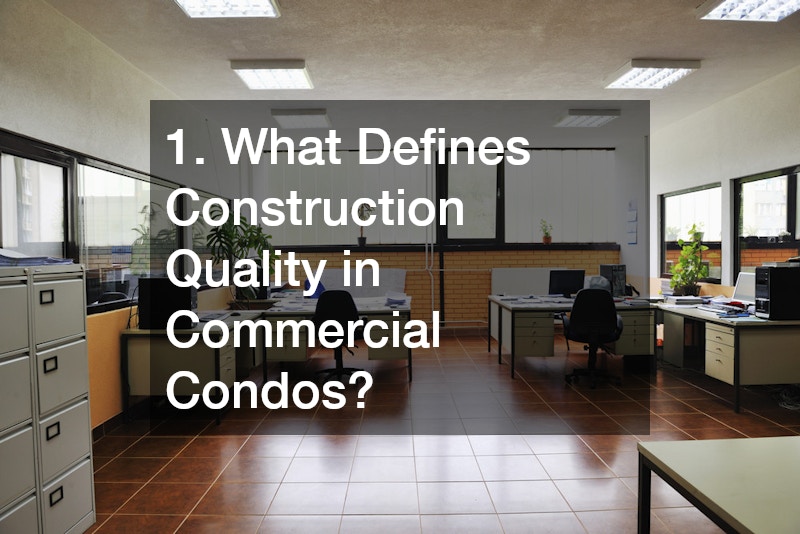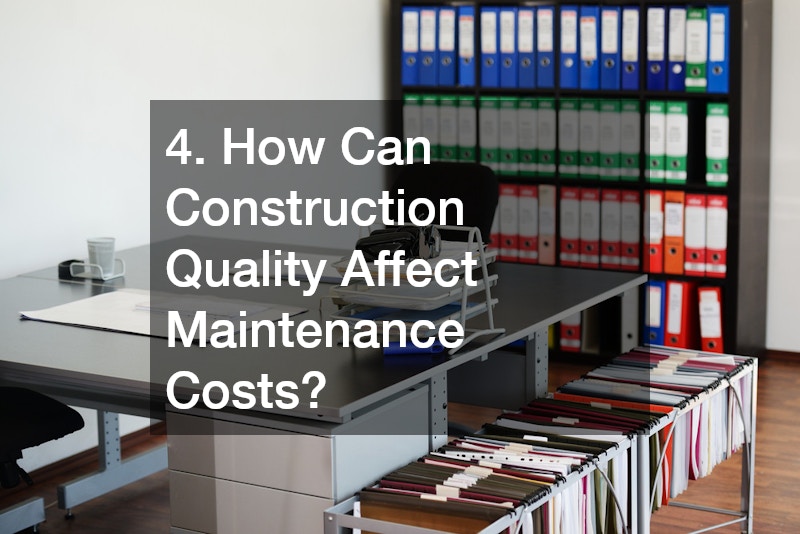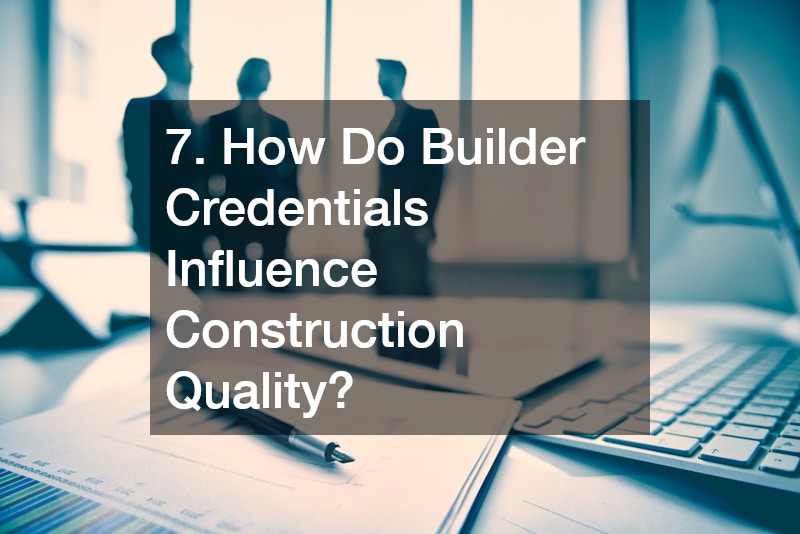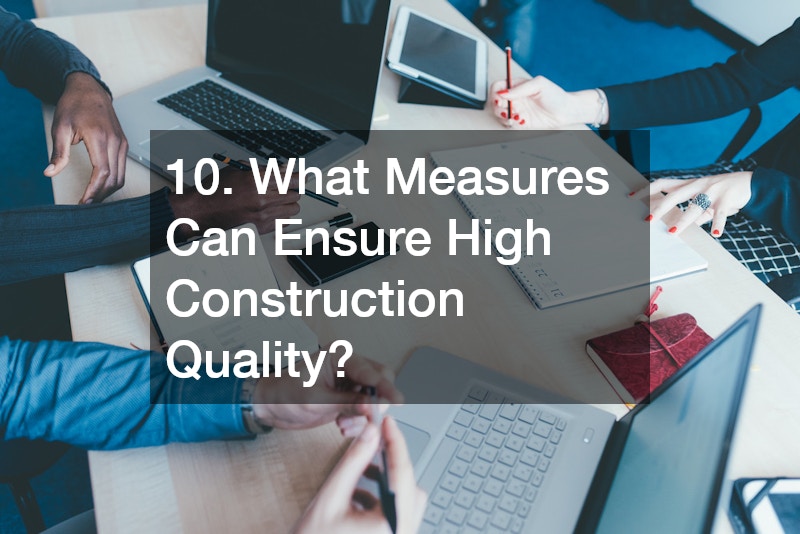Commercial condominiums, or commercial condos, have become an increasingly attractive option for businesses and investors alike. Unlike leasing office or retail space, ownership of a commercial condo provides long-term stability, equity growth, and a greater degree of control over property management decisions. For small business owners, startups, and professional practices, commercial condos offer an opportunity to build wealth while also securing a reliable location for operations. For investors, they represent a way to diversify portfolios while generating steady rental income.
Yet, the true value of a commercial condo extends far beyond location and square footage. Construction quality plays a decisive role in determining the long-term success of these properties. A well-constructed building reduces ongoing maintenance expenses, enhances energy efficiency, and creates a safer environment for tenants and visitors. High-quality construction materials and techniques also help maintain property aesthetics, which directly influences both market value and rental rates. Conversely, poor construction practices can lead to expensive repairs, tenant dissatisfaction, and diminished property value over time.
This article explores the profound impact of construction quality on the value of commercial condos. From the fundamentals of construction standards to the role of professional contractors, energy efficiency, and resale potential, we’ll break down how quality construction is not just a matter of durability; it’s an investment in profitability, sustainability, and market competitiveness.
1. What Defines Construction Quality in Commercial Condos?

When evaluating commercial condos, construction quality refers to the materials, techniques, and finishes used during development. Key elements include structural integrity, durability of materials, adherence to building codes, and the attention to detail in craftsmanship.
For instance, something as seemingly minor as the installation of commercial railing systems can be an indicator of quality. High-grade railings not only enhance safety but also add a polished look to stairways, balconies, and common areas. Low-quality or poorly installed railings, on the other hand, can present safety hazards and degrade quickly, requiring frequent replacements.
Beyond finishes, construction quality encompasses foundational strength, roofing integrity, window performance, insulation, and mechanical systems. These elements work together to ensure the building can withstand environmental pressures while offering a comfortable and functional space for tenants. When all aspects of construction meet high standards, commercial condos command greater respect in the marketplace.
2. How Does Construction Quality Influence Market Value?
Market value in commercial real estate depends on several variables: location, demand, amenities, and most importantly, construction quality. Buyers and investors are willing to pay a premium for properties that demonstrate durability and require minimal repair work.
Consider the example of parking lot paver installation. A commercial condo with a well-constructed parking lot not only improves curb appeal but also ensures functionality for tenants and customers. Smooth, professionally paved lots reduce liability risks associated with accidents and reflect the developer’s commitment to quality. Poorly constructed or neglected parking areas, however, can diminish property value and deter prospective tenants.
Ultimately, construction quality directly impacts perceived value. A property that exhibits superior craftsmanship and durability reassures buyers and tenants that they are making a safe, long-term investment.
3. What Are Common Construction Deficiencies in Commercial Condos?
Unfortunately, not all commercial condos are built to the same standard. Common deficiencies include roofing problems, poor insulation, substandard plumbing, and inadequate structural reinforcement.
Roofing is a particularly common concern. Hiring a local commercial roofing company with proven expertise can prevent issues such as leaks, mold, and premature deterioration. When corners are cut in roofing installation, property owners may face significant repair costs and tenant complaints.
Other frequent deficiencies include improper installation of HVAC systems, uneven flooring, and the use of low-quality windows that compromise energy efficiency. These flaws not only reduce the immediate value of the property but can also result in long-term safety risks and higher maintenance costs.
4. How Can Construction Quality Affect Maintenance Costs?

Maintenance expenses are among the largest ongoing costs for any property owner. Poor construction quality increases these costs significantly by causing systems to fail earlier than expected. For instance, poorly sealed windows and low-grade roofing materials often result in leaks that require expensive, recurring repairs.
High-quality construction reduces these risks and minimizes routine maintenance. In the realm of commercial real estate, this translates into higher net operating income (NOI) and greater return on investment. Property owners who prioritize construction quality benefit from predictable expenses, which is especially critical for investors managing multiple commercial condos.
Additionally, durable materials such as reinforced concrete, premium flooring, and energy-efficient systems may cost more upfront but lead to significant long-term savings. The reduced frequency of repairs also enhances tenant satisfaction, which further stabilizes rental income.
5. How Do Construction Practices Affect Energy Efficiency?
Energy efficiency is now one of the most critical considerations in modern commercial construction, as it directly impacts both operational costs and long-term property value. High-quality construction practices integrate advanced insulation, double-pane or even triple-pane windows, and properly sealed building envelopes to reduce energy loss. Efficient heating and cooling systems, when installed correctly, not only lower monthly expenses but also create a comfortable indoor environment that tenants greatly value.
For example, integrating commercial surveillance cameras into the property requires thoughtful electrical planning. Without proper wiring or updated power systems, the cameras can become energy drains and create potential safety risks. Similarly, HVAC systems that are poorly sized or improperly installed often waste energy, forcing tenants to deal with uneven temperatures and higher bills. A high-quality build ensures that ducts are sealed, equipment is optimized, and smart controls are integrated to maximize efficiency.
Energy-efficient construction also supports sustainability goals, making the property more attractive to eco-conscious businesses. Tenants increasingly seek out spaces that align with green practices, not only for cost savings but also for corporate responsibility. By reducing utility costs and enhancing environmental performance, energy-efficient commercial condos gain a competitive advantage in today’s marketplace.
6. What Role Does Construction Quality Play in Health and Safety?
Tenant health and safety should always be a top priority in commercial condos, as these factors directly influence both the well-being of occupants and the long-term value of the property. Poor construction practices can expose occupants to significant risks such as mold growth from improper waterproofing, inadequate fireproofing in structural components, or unstable foundations that compromise the integrity of the building. Even small oversights, like faulty wiring or poorly installed ventilation, can create hazardous conditions that threaten tenant safety.
A qualified commercial contractor ensures that every aspect of construction, from emergency exits to fire suppression systems and air quality management, meets strict local and national safety codes. Proper materials and skilled workmanship safeguard against hazards such as slips and falls, electrical fires, and carbon monoxide leaks. Regular inspections and compliance with OSHA and ADA standards further reinforce safety measures.
High-quality construction also plays a vital role in accessibility. Features such as ADA-compliant ramps, elevators, and sturdy commercial railings help create a safe environment for all occupants, including individuals with mobility challenges. These safety investments not only protect tenants but also reduce liability for owners, enhance property reputation, and ensure full compliance with evolving building regulations.
7. How Do Builder Credentials Influence Construction Quality?

The experience and credentials of a builder often dictate the quality of a finished commercial condo. A reputable contractor will follow best practices, use reliable materials, and adhere to industry standards that protect both the property’s value and the safety of its occupants. Their knowledge of building codes, zoning requirements, and modern construction techniques ensures the project is executed correctly the first time.
For example, just as businesses rely on a commercial cleaning company to maintain a pristine appearance, property owners rely on experienced builders to deliver durable, safe, and visually appealing structures. Checking references, verifying licenses, and reviewing past projects are critical steps in ensuring construction quality. A builder who has successfully completed similar projects can often anticipate potential challenges and resolve them before they become costly problems.
Builder credentials also reflect accountability. Companies with established reputations are less likely to cut corners, as their long-term success depends on satisfied clients and referrals. Certifications, memberships in professional organizations, and industry awards further demonstrate commitment to excellence. Choosing the right contractor is therefore one of the most important factors in protecting the value of commercial condos, ensuring the investment is both structurally sound and marketable for years to come.
8. Can High Construction Quality Lead to Higher Rental Prices?
Yes, tenants are often willing to pay more for spaces that demonstrate high construction quality. Modern businesses value features such as efficient HVAC systems, soundproofing, and advanced wiring that supports technology-driven operations. These elements not only enhance day-to-day comfort but also improve productivity and reduce downtime, making the space more attractive compared to older or poorly built properties.
Working with a reliable commercial HVAC service ensures climate control systems are designed for efficiency, reliability, and comfort. A well-functioning system keeps operating costs predictable, improves air quality, and creates an environment where employees and clients feel comfortable. Tenants are more likely to sign long-term leases when they know the property can accommodate their needs without frequent disruptions or unexpected repairs.
In competitive markets, properties with high construction quality stand out by offering superior tenant experiences. This translates into higher rental prices, reduced vacancy rates, and greater overall profitability for owners and investors. Features such as modern energy-efficient windows, premium finishes, and thoughtful layouts reinforce the perception of value. Ultimately, the better the construction quality, the more leverage property owners have to command premium rents while fostering tenant loyalty and satisfaction.
9. How Does Construction Quality Affect Resale Value?
Resale value is perhaps the most direct measure of how construction quality impacts commercial condos. Properties with durable materials, updated systems, and aesthetically pleasing finishes consistently command higher resale prices. Buyers and investors are often willing to pay more for condos that require minimal renovations or upgrades, as this translates into reduced future expenses and a faster move-in timeline.
The work of commercial electricians is a prime example. Properly installed electrical systems ensure long-term functionality, compliance with modern codes, and reduced risks of fire or power failure. Features such as energy-efficient lighting, smart building automation, and sufficient electrical capacity for expanding tenant needs can all boost resale appeal. Conversely, outdated or poorly executed electrical work can severely diminish resale value by forcing future buyers to budget for costly upgrades, creating hesitation during negotiations.
Additionally, the reputation of the original builder often influences resale perceptions. A property constructed by a trusted name in the industry, known for quality and integrity, typically retains or increases its value more reliably than one with questionable construction practices. High construction quality signals long-term stability, offering buyers confidence that they’re making a safe, profitable investment.
10. What Measures Can Ensure High Construction Quality?

Property owners and developers can take proactive steps to ensure construction quality. First, selecting experienced, licensed contractors is essential. Regular inspections throughout the construction process also help identify and correct issues before they escalate.
Employing commercial painters, for example, may seem like a minor detail, but their craftsmanship impacts the final appearance and durability of the property. High-quality finishes not only improve aesthetics but also protect walls from wear and tear.
Other measures include insisting on premium materials, maintaining detailed contracts that outline quality standards, and working closely with architects and engineers to align design with construction practices. By prioritizing these steps, owners can ensure that their commercial condos maintain long-term value and tenant appeal.
Commercial condos represent a powerful investment opportunity, offering stability, income potential, and long-term appreciation. Yet, the true value of these properties hinges on the quality of their construction. From foundational strength to finishes like railings and paint, every detail contributes to market value, tenant satisfaction, and future resale potential.
By investing in high-quality construction practices and partnering with reputable contractors, property owners can significantly reduce maintenance costs, improve energy efficiency, and enhance safety. Whether through reliable roofing, efficient HVAC systems, or durable finishes, construction quality is the backbone of profitable and sustainable commercial condo ownership.
In a competitive marketplace, where first impressions and long-term performance matter, prioritizing quality isn’t just an option, it’s a necessity. For developers, investors, and business owners alike, focusing on construction excellence ensures that commercial condos remain valuable, appealing, and resilient for years to come.


